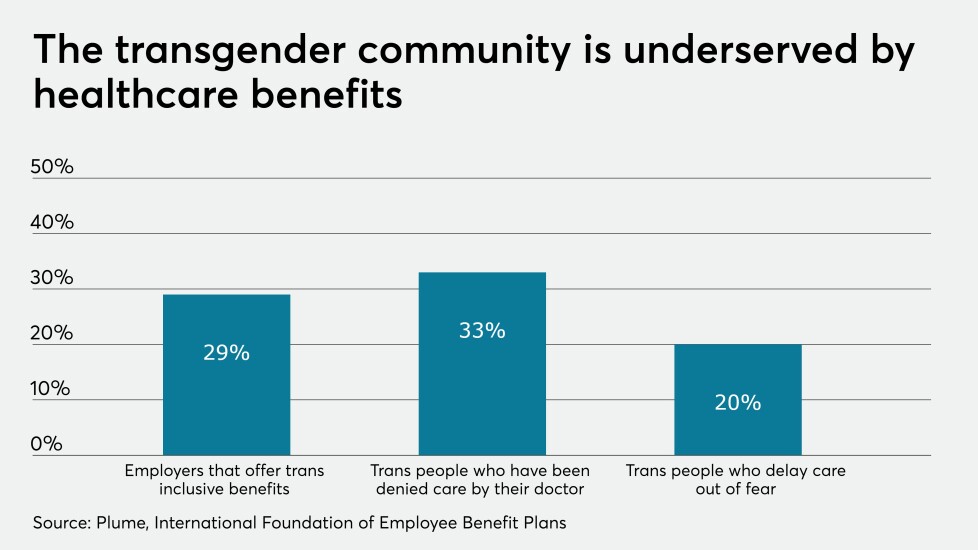As the transgender community continues to battle discrimination, employers can be valuable allies by creating a positive environment that promotes diversity and inclusivity in the workforce.
Transgender employees are already one of the most underserved communities in the workforce when it comes to healthcare benefits.
Indeed, only 29% of U.S. employers offer transgender-inclusive healthcare benefits, according to the International Foundation of Employee Benefit Plans, an organization that offers education for the employee benefits community.
Insurance often looks at medically necessary treatments transgender employees require as elective or cosmetic, and therefore doesn’t provide adequate coverage, despite the fact that such care is viewed by the medical profession as necessary procedures.
“Healthcare related to gender transition has been universally recognized by every major medical organization that has spoken on the issue as medically necessary care,” said Joshua Block, an attorney with the American Civil Liberties Union. “Not only do these exclusions violate the contemporary standards of care of the medical community, but they also violate federal and state anti-discrimination laws.”
Read More:
Transgender individuals are battling discrimination on an number of fronts. However, employers are uniquely positioned to be an ally and create an environment that banishes this discrimination on every level.
Here are some strategies that employers can use to create a more trans-inclusive workplace.






